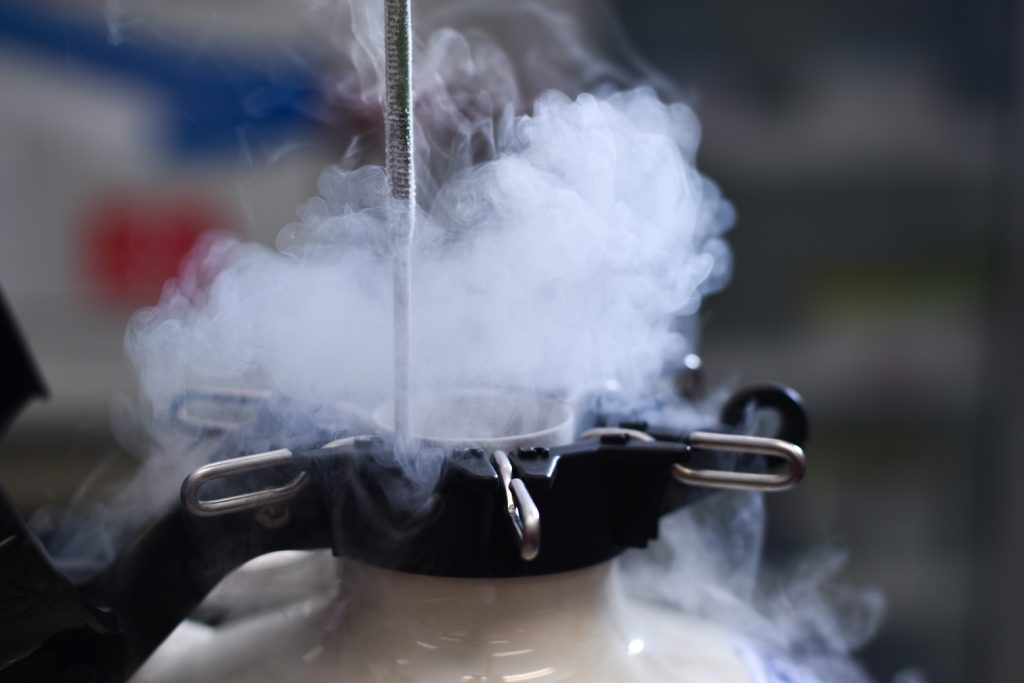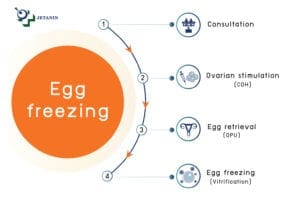IVF/ICSI
IVF/ICSI, is a method of fertilization that takes place outside the body and in a laboratory dish
Jetanin Hospital
In this modern society where women are more empowered and equality has become the norm, many organizations are run by able women. With more responsibilities over the shoulders, modern women are more likely to slow down their plans for marriage and have a child. However, according to several studies, women at age 35 or older have less chance to get pregnant and greater risk of infertility, as age is an important factor for fertility. The older a woman gets, the fewer eggs she has in her ovarian reserve and less competent the oocytes are. For these reasons, oocyte cryopreservation technology has become one of the readily available methods to ensure healthy eggs saved for later.
Oocyte cryopreservation (egg freezing) is a procedure to preserve a woman’s eggs (oocytes).
This technique has been used to enable women to postpone pregnancy to a later date – whether for medical reasons such as cancer treatment or for social reasons such as employment or study. The eggs are extracted, frozen and stored.

Cryopreservation involves the preservation of cells and tissues for extended periods of time at sub-zero temperatures. Cryoprotective additives (CPAs) are used in order to reduce cryodamage by preventing ice formation. The eggs are stored in -196°C liquid nitrogen. There are two basic techniques generally used in the cryopreservation:
1. Slow freezing Oocytes are cooled at a slow rate of 0.3–0.5°C/minute, controlled by computer.
2. Vitrification A newly developed technique with fast cooling rates of 15,000- 30,000 °C/minute using more concentrate CPAs to create a glass-like stage and prevent ice formation which would damage the egg cells.
At Jetanin, we use vitrification method for freezing. Using a high concentration of cryoprotectant and rapidly cooling down the temperature to help reduce ice crystal formation, reduce cell damage and increase success rate.
